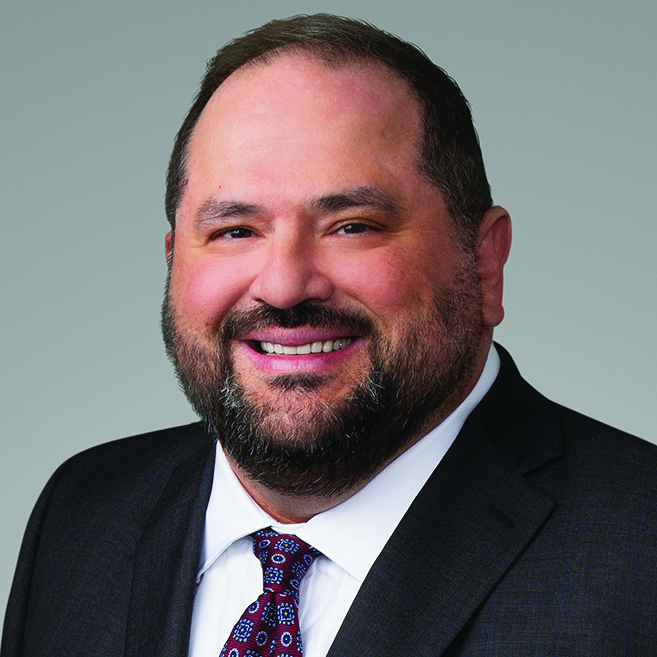Prominent tax controversy and planning attorney Richard Husseini officially joined Kirkland & Ellis last week.
The Texas Lawbook reported on Husseini’s expected departure from Baker Botts in June. The Houston partner held numerous leadership positions at Baker Botts including executive committee member and firmwide chair of the tax department. He was also considered for firmwide managing partner two years ago.
Husseini represented Pennzoil on its tax liability for the settlement proceeds that resulted from the company’s historic litigation against Texaco in the 1980s. On the transactional side, he advised on Halliburton’s $35 billion acquisition of Baker Hughes, which was eventually terminated; Chesapeake Energy’s spinoff of Seventy Seven Energy; and Mariner Energy’s merger with Apache.

Kirkland has tasked Husseini with growing the controversy side of the firm’s tax practice. The Texas Lawbook caught up with him on why he made the big move after spending his entire 30-year career at one firm, clerking for Judge Richard Posner and changes at the Internal Revenue Service.
The Lawbook: Why did you make the move to Kirkland?
Husseini: Kirkland offered me a unique opportunity to practice on its phenomenal platform and to help the firm grow its tax controversy practice.
The Lawbook: How influential was the partnership vote for managing partner two years ago in your decision to leave Baker Botts?
Husseini: I will always cherish my time at Baker Botts and the many lifelong friendships I developed there. Kirkland provided me an incredible opportunity to lead the growth of the tax controversy practice. Because this opportunity was so attractive, I knew the time was right to make a move.
The Lawbook: What are two or three of the most interesting matters you have handled in the past couple of years?
Husseini: I successfully resolved matters relating to the proper tax treatment on the movement of intellectual property; the proper tax treatment of a financial instrument (involving the application of the straddle, section 263(g) and contingent payment debt instrument rules); and the application of the foreign tax credit rules to an the oil and gas transaction involving a dispute between the underlying commercial parties. The Tax Cut and Jobs Act (TCJA) has also been a fertile source of controversy matters over the last year or so, along with the recurring items of section 199 and the R&D credit.
The Lawbook: How did you come to specialize in tax controversy and planning?
Husseini: I love tax law. Tax controversy allows me to navigate the complexity and nuance of the tax law while at the same time distilling complex webs of tax rules to their essence, all with the goal of producing favorable outcomes for clients. It is hard to imagine a more rewarding area of the law.
The Lawbook: Was there a specific case you worked on or client you represented that pulled you into tax law? Or did you develop your love in law school?
Husseini: I loved tax law from my first course in law school because of its complexity and nuance. When I was clerking for Judge Posner and observing oral arguments before the 7th Circuit, I came to appreciate the art of explaining arcane and complex areas of law to a non-specialist judge. That experience triggered in me a desire to try tax controversy. One of the first cases I worked on as a young lawyer was the resolution of the federal tax treatment of the amount Texaco paid Pennzoil in settlement of the $10+ billion judgment Pennzoil secured against Texaco related to Pennzoil’s contract to acquire Getty Oil. After that case, I was hooked on tax controversy.
The Lawbook: What did you learn from your clerkship with Judge Posner?
Husseini: The greatest impact on my legal career by far was my time spent clerking with Judge Posner. He taught me simplicity and clarity in writing and pragmatism in my approach to solving legal problems. A straightforward written analysis written from a pragmatic perspective virtually always yields the best outcome.
The Lawbook: What changes have you seen at the IRS with the transition to the Biden Administration?
Husseini: The IRS is clearly aware of and planning to meet the increased expectations for enforcement. They are adapting and refining some of their new campaign approaches and are planning for an influx of new hires to meet increased enforcement activity levels.
The Lawbook: What issues are keeping your clients up at night?
Husseini: What will the IRS approach on new enforcement look like? Will the IRS revert to auditing all large taxpayers? Will their announced focus on auditing large partnerships gain steam? Will the IRS continue to follow their “campaign approach” to audits? Will Appeals retain its historically independent role or will it lose that status meaning more matters will head to court? What tax law changes are likely to be enacted? Which provisions will be retroactive?
The Lawbook: What are the emerging trends or key developments in your tax controversy practice?
Husseini: Expectations are for dramatic uptick in enforcement and in mandatory taxpayer reporting. The IRS is also likely to contest more issues with taxpayers on audit, resulting in further increases to Appeals’ caseloads and court filings. State and local governments are likely to be more aggressive, and there will be more coordination between the IRS, state/local taxing authorities and non-US taxing authorities.
